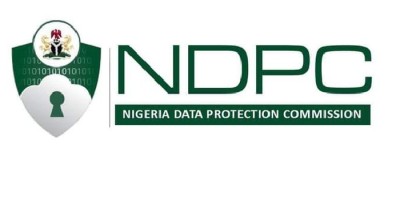Policy & Regulatory Measures Against the Coronavirus Pandemic in Nigeria
Posted on Wed 1 Apr 2020
- Download Resource
-
EMERGENCY ECONOMIC STIMULUS BILL
In a similar move to the regulatory actions of the CBN, the House of Representatives of the Federal Republic of Nigeria (the “Federal House”), has proposed a bill tagged “Emergency Economic Stimulus Bill 2020” (“the Bill”), for legislative debate and possible passage into an Act of the National Assembly.
The Bill, which is expected to apply and have effect throughout the country if passed into law, generally seeks to provide for reliefs on Corporate Tax Liability, Import Duty on Selected Goods and Mortgage Obligations to the Federal Mortgage Banks; as a legislative response to the economic downturn occasioned by the COVID-19 outbreak in Nigeria.
The provisions of the Bill are drafted to give effect to its broad aims and objectives, which include:
-
Provision of temporary relief to companies and individuals to alleviate the adverse financial consequences of a slowdown in economic activities;
-
Protection of the employment status of Nigerians, who might otherwise become unemployed as a consequence of management decision to retrench personnel in response to the prevailing economic realities;
-
Provision for a moratorium on mortgage obligations for individuals, at a time of widespread economic uncertainty;
-
Elimination of additional fiscal bottleneck on the importation of medical equipment, medicines, personal protection equipment, and other such medical necessities; as may be required for the treatment and management of the coronavirus disease in Nigeria; and
-
Catering to the general financial wellbeing of Nigerians, pending the eradication of the coronavirus pandemic and a return to economic stability.
Some of the specific reliefs sought by the Bill include:
-
Fifty percent (50%) income tax rebate[1] on the total of the actual amount of tax due or paid as Pay-As-You-Earn (PAYE) under the Personal Income Tax Act[2] (“PITA”), for companies that maintain the same employee status, without retrenching their staff, as at 1st of March 2020 till the rest of the year ending 31st of December 2020. It should be noted that only employers duly registered under “Part A” and “Part B” of the Companies and Allied Matters Act[3] (“CAMA”) are eligible to claim the tax rebate[4]. The eligible employers, however, exclude those that are subject, either partly or wholly, to the Petroleum Profit Tax Act[5]. Subject to ratification by a majority of the members of the National Assembly, the rebate period may be extended by the President, for such duration in which the COVID-19 remains an urgent and severe public health emergency.
-
Deferral for a period of 180 days effective from 1st of March 2020, of the payment of all mortgage obligations on residential mortgages obtained by individual contributors to the National Housing Fund (“NHF”), notwithstanding the provisions of the NHF Act, 2018 or any other applicable law or regulation. The deferral may be extended by the President for another period of 180 days, subject to a majority vote by members of the National Assembly.
-
Waiver of import duty on medical equipment, medicines, personal protection equipment and other such medical necessities[6] as may be required for the treatment and management of the Coronavirus Disease in Nigeria. The import duty waiver shall remain in force from the 1st of March, 2020 to the 31st of December, 2020 or any other time as may be extended by the President under the enabling law[7].
-
-
PRIVATE SECTOR COALITION
The Private Sector Coalition was formed, following series of CBN’s engagements with key private sector players and stakeholders[8]. It was created out of the urgent need to provide support to the Federal Government in combating the Coronavirus pandemic, particularly the required funding[9] for the procurement of necessary medical equipment, materials and infrastructure.
The Coalition aims to combat the Coronavirus through achieving the following objectives:
-
Mobilize private sector thought leadership;
-
Mobilize private sector resources;
-
Increase general public awareness, education and buy-in;
-
Provide direct support to private and public healthcare’s ability to respond to the crisis; and
-
Support Government effort.
The Coalition is structured to work with reputable institutions and consultants, through its four (4) major committees[10].
-
-
COMMENTARY
The CBN Policy Measures are appropriate responses to the negative economic impact of the COVID-19 outbreak. By covering the worst hit and most vulnerable sectors, the measures are expected to effectively cushion the adverse effects of the pandemic on households, MSMEs and large corporates alike.
It is our view that, if credit to households and businesses is stimulated and sustained at this time with fiscal relief and regulatory forbearance granted to individuals and corporates, the challenges posed to business entities and disruptions to commercial transactions in the wake of the Coronavirus pandemic, will be substantially mitigated.
The targeted nature of the various intervention funds enhances project-tied or sector-specific financing. This way, development of critical sectors of the economy with the most impact on households and businesses, such as agriculture, manufacturing, and trading can be accelerated. Similarly, the provision of long-term, low-cost finance for the development of a world-class aviation and healthcare infrastructure in the country will significantly reduce capital flight and conserve foreign exchange. This will enhance the capacity of the economy to absorb the shocks from a global pandemic like the COVID-19.
Also, we note that the efforts of the Private Sector Coalition will provide the needed private sector support for the successful implementation of the various CBN intervention policies. However, restricting its membership to only persons who can contribute a minimum of N1 Billion, has the potential to exclude interested members of the society, who may not have the capacity to donate up to the prescribed minimum amount. In our view, reducing the minimum membership contribution, will likely reduce the time to raise the target fund, as well as ensure a more diverse organization in terms of skills.
Finally, whilst the proposed Emergency Economic Stimulus Bill is a right step in a right direction, as it appears to provide legislative backing for some of the policy measures already introduced by the CBN, considering the realities of the COVID-19 pandemic and the need to take drastic and urgent measures; in our view, the Bill ought to have been passed into law by now. On the contrary, it is not clear whether the Federal House has actually passed the Bill, and if yes, when it will be transmitted to the Senate for the required legislative concurrence.
In any event, the policy and regulatory measures being undertaken to mitigate the pains of the Coronavirus outbreak in Nigeria are expected to yield positive results for households and businesses and promote stability in the economy.
1 As defined in the Bill, the income tax rebate shall be 100% refund of the employer’s income tax (Companies Income Tax or Personal Income Tax, whichever is applicable) for the period, subject to a limit of 50% of the PAYE tax remitted on behalf of the employees for the same period.
2 Cap. P8, Laws of the Federation of Nigeria, 2004.
3 Cap. C20, Laws of the Federation of Nigeria.
4 An employer shall not be deprived of the tax rebate, in the relevant period, where an employee dies of natural death; voluntarily
leaves the employment or has indicated interest to leave the employment before March 1, 2020; or where the employee
breaches the Labour Act, Cap. L1, Laws of the Federation of Nigeria 2004.
5 Cap. P13, Laws of the Federation of Nigeria, 2004.
6 The Bill empowers the Honourable Minister of Health to specify any other goods qualified for import duty waiver, by regulations
published in the Federal Government Gazette.
7 Section 13(1) (a), Customs, Excise, Tariffs, Etc., (Consolidated) Act of 1995.
8 The Private Sector Coalition was formed by the CBN Governor, Aliko Dangote, Herbert Wigwe, Jim Ovia, Tony Elumelu,
Segun Agbaje, Femi Otedola, Abdulsamad Rabiu while many other prominent business personalities, foundations, and corporate
entities have since joined and made donations to the Coalition. Membership is open to anyone willing to contribute at least N1
Billion, and able to influence his/her organization to donate towards the realization of the objectives of the Coalition.
9 The Private Sector Coalition estimates that a minimum of N120 Billion is required to procure medical equipment and materials
needed to fight the COVID-19 outbreak in Nigeria.
10 Steering Committee, Funding Committee, Operational Committee, and Technical Committee.
The Grey Matter Concept is an initiative of the law firm, Banwo & Ighodalo
DISCLAIMER: This article is only intended to provide general information on the subject matter and does not by itself create a client/attorney relationship between readers and our Law Firm or serve as legal advice. Specialist legal advice should be sought about the readers’ specific circumstances when they arise.













